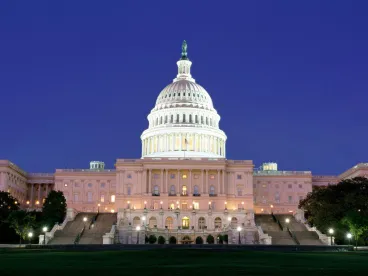In July on this Blog, I suggested that the House Committee on the Judiciary’s bipartisan Over-Criminalization Task Force may be worth keeping an eye on. With that in mind, here is a bit of an update.
When the Task Force was re-authorized this past February, it was scheduled to conclude its work in early August 2014. Of course, early August has come and gone. So, you may be wondering whether there is anything new to report about the Task Force. It appears that the House Committee has not again re-authorized the Task Force since February, and that the Task Force has held its final hearing. A report by the Task Force may not be too long in coming, and it will be interesting to see what Congress does, if anything, with the work product. It is also possible that the Sentencing Commission will have an interest in what the Task Force has to say.
In mid-August, The Heritage Foundation issued an article entitled “Is Congress Addressing Our Overcriminalization Problem? Reviewing the Progress of the Overcriminlization Task Force,” which may be found here. The authors refer to the Task Force as “a work in progress” but that “it is noteworthy that the pace of the enactment of mew criminal legislation has slowed markedly during the time that the task force has been up and running.” In sum, the authors opine that “there is reason to be hopeful that Congress is paying attention to this problem and may decide to change the status quo.”
The National Association of Criminal Defense Lawyers has established an “Overcriminalization Initiative” page, saying that the NACDL will document the Task Force’s efforts on that page. For example, the NACDL noted that in the Task Force’s hearing entitled “Defining the Problem and Scope of Over-Criminalization and Over-Federalization”, witnesses talked about a Congressional Research Service report that “tabulated the number of criminal offenses enacted from 2008 to 2013” finding “that 439 offenses were added during that five year period.”
The Task Force has held eight hearings on a wide range of topics since late 2013, with the most recent being in late July 2014. Groups and organizations as diverse as Families Against Mandatory Minimums, the Southern Coalition for Social Justice, The Heritage Foundation, and the NACDL, to name a few, have been following and commenting on the Task Force’s work. Most of the witness testimonies are available on the web-site for the Committee on the Judiciary’s web-site.
If this topic is of interest to you because you are a defense attorney, a federal prosecutor, or someone who has an opinion about the federal criminal system (whatever that opinion is), you are encouraged to continue to keep an eye open for further word on this very important topic. This is especially true as Congress considers legislation such as the Smarter Sentencing Act, and in light of the Department of Justice’s “Smart on Crime” initiative.




 />i
/>i
